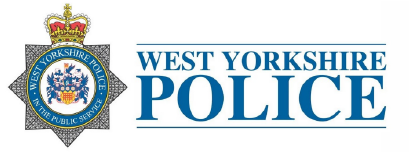Restorative Justice & Hate Crime
Posted on: 9th, October 2023
Restorative Justice is suitable for all crimes where there is an identifiable victim and offender, including hate crimes. A hate crime is defined by the Metropolitan Police as any incident which the victim, or anyone else, thinks is based on someone’s prejudice towards them because of their race, religion, sexual orientation, disability or because they are transgender.
National Hate Crime Awareness Week runs from 14th - 21st October, with the goal to raise awareness, encourage reporting of hate crimes, and provide education to prevent further incidents from taking place. Hate Crime Awareness Week is a national week of action that encourages communities, authorities and other parties to work together to tackle hate crime.
Restorative Justice supports individuals and communities by providing victims of hate crimes and the offenders with the chance to discuss the incident. Victims can share how they’ve been impacted by the crime, which can help offenders understand the consequences of their actions. Restorative Justice also provides the opportunity for offenders to apologise.
Hate Crime Case Studies
These case studies show how Restorative Justice can empower victims of hate crime and give them the chance to have their voice heard.
Case Study 1 - Racially Aggravated Offence
An Asian shopkeeper was verbally abused by the offender and the case was referred to Restorative Solutions by the police authorities. Both victim and offender were supported at the meeting by their wives, and it was an emotional conference for all participants as they discussed the impact of the crime. The offender showed remorse and apologised for his action, which was warmly accepted. The feedback received from all parties stated they were extremely satisfied with the Restorative Justice process.
Case Study 2 - Hate Crime Awareness Course
Amiya was Warren’s Case Manager when he committed racial and religious verbal abuse against her, leading to him being charged at court. After Warren completed the Hate Crime Awareness Course offered by Restorative Solutions, Amiya wished to meet with him to share the impact of his actions on herself and her family.
During the Restorative Justice meeting, Warren apologised, saying the process “made me understand that my actions have long lasting effects, not just on myself but others around me…it was eye opening for me." Amiya said that she “came away feeling good about the meeting. I’m glad I had the opportunity to say what I needed to say to Warren."
Case Study 3 - Transphobic Comments
A victim received transphobic messages from an individual they had previously considered a friend, leading to the offender receiving a mandatory condition to engage with the Restorative Justice service. The offender was keen to participate and repair the harm caused, saying he ‘would like to try and do it as it could make me a better person’. Following the meeting, the victim said they were “very grateful we took the time to sort it out” and would “100% recommend this to others”.
Reporting hate crime
If you have experienced or witnessed a hate crime, you can report it online here. If you’ve been involved in a hate crime offence, either as victim or offender, and would like to pursue Restorative Justice, please get in touch. As Restorative Justice is a voluntary process, it’s important to remember that both parties have to agree to participate.



